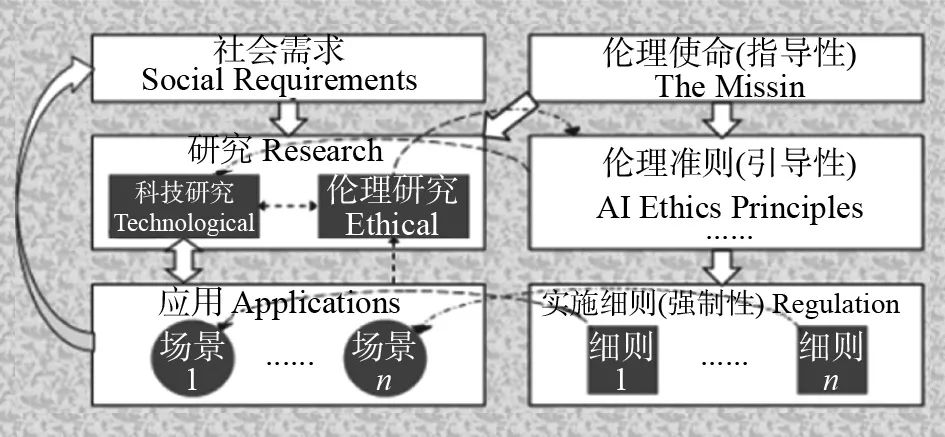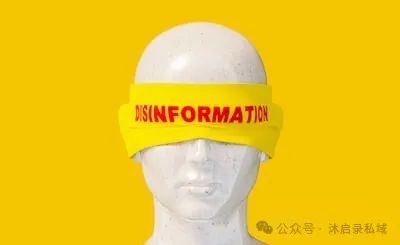EU Artificial Intelligence Ethics Guidelines Are Released! Is It A "tight Hoop" Or An "accelerator"? | China Automobile News
EU Artificial Intelligence Ethics Guidelines Are Released! Is It A "tight Hoop" Or An "accelerator"? | China Automobile News
There has never been a technology that has caused ethical concerns, or even inexplicable fears, like artificial intelligence. On April 8, the European Commission issued the ethical guidelines for artificial intelligence, putting forward relevant conditions and normative guidelines.
Will artificial intelligence be smarter than humans? Where will autonomous driving take people? There has never been a technology that has caused ethical concerns, or even inexplicable fears, like artificial intelligence. On April 8, the European Commission issued the ethical guidelines for artificial intelligence, putting forward relevant conditions and normative guidelines.
"In the era of artificial intelligence, as well as the new four modernizations of big data, 5G, and automobiles, it is necessary to make advanced technologies better serve people and make norms. This is a "peace of mind" for the research and development of technologies such as autonomous driving based on artificial intelligence or the development of industries." On April 11, Cui Dongshu, Secretary-General of the National Passenger Car Market Information Joint Conference, expressed this view by an interview with a reporter from China Automobile News. He believes that with standards, there will be fewer deviations and troubles, and standards also drive the rebalancing of the relevant cognition and behavior of the automobile industry's capital, market, and enterprises.
Smart cars have "tracks"

Autonomous driving systems are considered to be the highest goal of the development of automobile intelligence. They integrate artificial intelligence, automatic control technology, information and communication technology, and modern sensing technology. They are highly expected in reducing traffic accidents, alleviating traffic congestion, reducing energy consumption, and protecting the environment. It is precisely because of these advantages that many countries in the world, especially developed countries, are actively formulating a roadmap for autonomous driving technology and vigorously promoting the development of autonomous driving cars. In the industry, autonomous driving is considered an important fulcrum for the transformation and upgrading of the automobile industry, and it is also a hot spot for competition among many companies today.
"Artificial intelligence that meets ethical standards will bring a win-win situation and can become a competitive advantage in Europe." Andrews Ansip, Vice President of the European Commission and Vice President of EU Single Digital Market Strategy, said, expressing the purpose of the EU's release of the ethical norms of artificial intelligence.
According to reports, the European Union issued the artificial intelligence ethical guidelines list seven key conditions for "trusted artificial intelligence", namely human initiative and supervision capabilities, security, privacy data management, transparency, inclusiveness, social welfare, and accountability mechanisms, to ensure that artificial intelligence is safe and reliable enough. The EU defines "artificial intelligence" as "a system that displays intelligent behavior", which can analyze the environment and exercise a certain degree of autonomy to perform tasks.
Among them, "trusted artificial intelligence" has two necessary components: one is to respect basic human rights, rules and regulations, core principles and values; the other is to be technically safe and reliable to avoid unintentional harm caused by insufficient technology. For example, if artificial intelligence is in the field of autonomous vehicles, the EU's normative goal is to constrain the design of technical systems that are not harmful or potentially harmful to consumers.
"The ethical norms of artificial intelligence issued by the EU emphasize that 'trusted artificial intelligence' will inevitably have an important impact on the research and development and application of a series of artificial intelligence automotive technologies, including autonomous driving." Liang Zheng, a professor at the School of Public Administration of Tsinghua University, who has been paying attention to this field, said in an interview with a reporter from China Automobile News.
Legislation and norms of developed countries

Regarding autonomous driving supported by artificial intelligence, technology has evolved rapidly and developed rapidly in recent years, which is eye-catching, and the construction of relevant laws, regulations and systems has attracted great attention.
The international convention that is used in the field of automobile driving is the Vienna Convention on Road Traffic (hereinafter referred to as the Convention), which the United Nations Economic Commission for Europe amended in March 2016. The new Convention stipulates that on the premise that the autonomous driving system fully complies with the United Nations Vehicle Management Regulations and that the driver can manually choose to turn off the autonomous driving system, the driver can hand over the driving responsibilities of the vehicle to the autonomous driving system.
In Europe and the United States, legislation has also been continuously passed, which on the one hand established the legal status of autonomous driving and on the other hand regulated related work, thereby eliminating concerns from all walks of life about this type of new technology.
In 2017, the German Federal Parliament promulgated the Eighth Amendment to the Road Traffic Law. The bill clearly allows the "use of" the auto-driving function of automobiles as required, clarifying the rights and obligations to use the function, as well as the rules for the collection, storage, use and deletion of driving data, thus establishing a relatively complete system of rights and responsibilities, providing guarantees and regulations for the development of smart cars in Germany to a certain extent, and clearing legal obstacles.
In the United States, more than a dozen states (SARs) have issued dozens of regulations on autonomous vehicles that have entered into force.
Countries such as the United Kingdom, France, Canada, Australia, Finland, Sweden, etc. have also explored the legislative level of technology competition and promulgated many laws and regulations on autonomous driving.
"Current autonomous driving technology, especially the core algorithm, is mainly the result of large-scale data training. It has great limitations and is easily disturbed. Its safety, interpretability and trustworthiness are all problems. If the principles related to artificial intelligence and autonomous driving technology are elevated to laws and regulations to regulate it, it will definitely have a significant impact on the development direction of this field and the pace of commercialization of autonomous driving technology." Liang Zheng believes.
Domestic system needs to be improved urgently

The progress of artificial intelligence and autonomous driving technology and institutional construction abroad are almost synchronized and are developing rapidly, and the relevant situation in China has also attracted great attention.
"Artificial intelligence is an important technical support for the realization of autonomous driving, which has become a consensus in the industry. The construction of foreign legislative system has also forced my country's related work to speed up." Cui Dongshu believes that, first of all, artificial intelligence is a strategic technology leading a new round of scientific and technological revolution and industrial transformation. Some countries have elevated artificial intelligence to a major national development strategy and need to be paid enough attention. Secondly, we should see that the application of artificial intelligence technology is uncertain, which will bring new challenges in legal relations, moral ethics, social governance, etc. Therefore, it is very necessary to formulate rules and systems, laws and regulations, clarify the development direction, draw a "red line", and promote the healthy development of this industry along the correct track. Furthermore, the autonomous driving vehicles developed by some Chinese companies have entered the road testing stage, and road testing from road testing in Beijing, Shanghai, Chongqing and other places are in progress. It can be seen that the formulation of relevant domestic norms and systems seems to be more urgent.
During the interview, the reporter learned that the Standing Committee of the National People's Congress has included some legislative projects closely related to artificial intelligence, such as the Digital Security Law, the Personal Information Protection Law and the Amendment of Science and Technology Progress Law, in the legislative plan of this National People's Congress. With the advancement of this work, my country's autonomous driving will usher in a better development environment. "Include legislation on artificial intelligence in a fast-track research project, conduct in-depth investigations and demonstrations on relevant legal issues, strive to make artificial intelligence innovative and develop, and strive to provide strong legal guarantees for the innovative and development of artificial intelligence." During the National People's Congress in March this year, Zhang Yesui, spokesperson of the Second Session of the 13th National People's Congress, publicly stated.
In and outside the industry, the development of autonomous driving technology in artificial intelligence and 5G environments has attracted much attention. Domestic auto companies, Internet companies, etc. have increased their efforts in technology research and development. However, autonomous driving also faces many problems in order to achieve "implementation", such as the lack and incompleteness of legislation, regulations and standards, which has led to innovators "dare not to leave" and "do not know how to go" in the process of technological development. During this year's National People's Congress, the National People's Congress representative Ma Huateng submitted a "Suggestions on Strengthening the Construction of Science and Technology Ethics and Practicing the Concept of Science and Technology for Good" that it is recommended to formulate ethical guidelines for new technologies such as artificial intelligence and autonomous driving at the national level, and guide and regulate the application of new technologies.
"The legislation on autonomous driving is very necessary, because the primary prerequisite for unmanned driving technology to be accepted by the public and commercialized is to ensure personal safety." In Liang Zheng's view, institutional construction is of great significance, and we can appropriately refer to foreign practices and experiences to speed up the progress.
In terms of safety, the first of the six guidelines issued by the U.S. Department of Transportation regarding autonomous driving is to ensure safety.
The legislation should also adhere to the principle of "prudential and inclusiveness". The second of the six guidelines for autonomous driving is "technological neutrality", that is, it does not interfere with the choice of technology and hand it over to the market.
Legislation and institutional construction should draw a "bottom line" and stipulate what cannot be done, and leave the rest to market and social entities to choose freely.
"As an important symbol and specific application of the development of artificial intelligence, automobile autonomous driving is to rebalance between technology and people themselves, and between machines and human society, find the connection point of harmonious coexistence, and find the best path to harmonious travel. Institutional construction is the most fundamental means to control and regulate these relationships, so establishing rules and improving systems are extremely important, very necessary and urgently needed to be solved." Cui Dongshu believes that this may be the greatest enlightenment brought to us by the European Union's release of artificial intelligence ethical standards.


![[Speaking By South China University Of Science And Technology] Humans Give Artificial Intelligence Ethics, And Breakthroughs In The Direction Of Biological Evolution Are The Key](https://lcs-sfo.k4v.com/sites/38/article/2025/02/13/63/images/7dd34943ddad152fb2596da1e7a2f9c5.jpeg)


